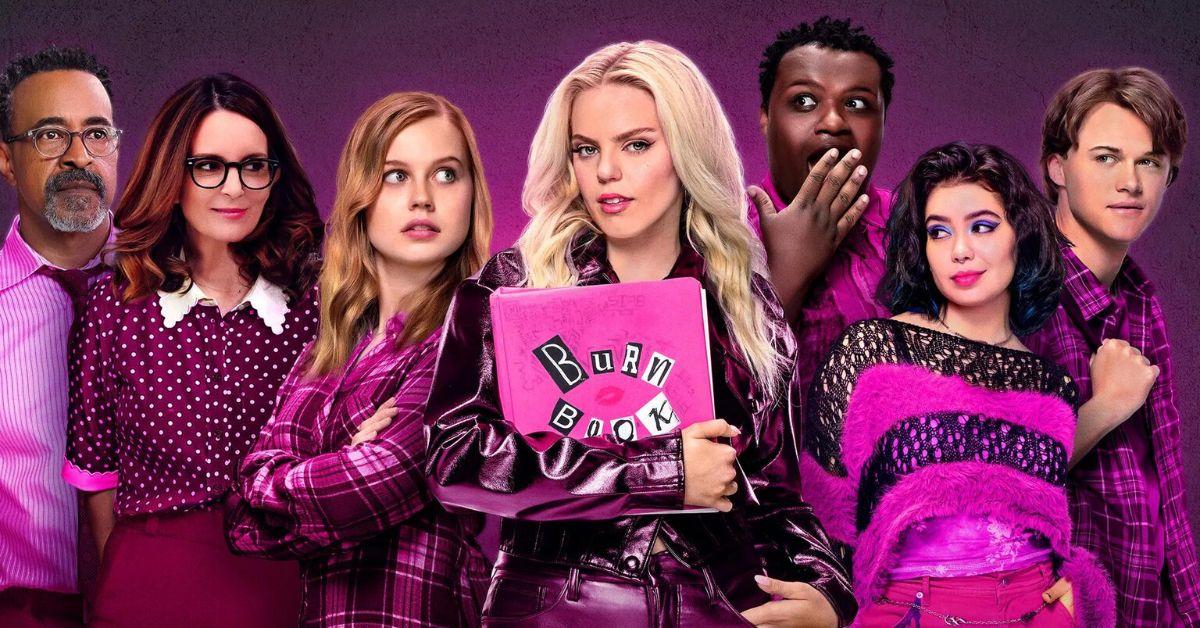By: Russ Matthews
Back in 2004, when the ‘Mean Girls’ first hit cinemas, Lindsey Lohan and Rachel McAdams made the Plastics into cinematic icons.
Based on Rosalind Wiseman’s 2002 book Queen Bees and Wannabes, Tina Fey (30 Rock) would adapt the story for the big screen and deliver an unprecedented iconic cast of characters. This production would become a Broadway musical that provided a fresh soundtrack to this comedic tale of fitting in in high school that now gets a new life on the big screen.
The story is familiar, though most of the cast has changed over the past two decades since the original. This cautionary tale is of Cady Heron (Angourie Rice), who moves to the Chicago suburbs after living in Kenya with her celebrated biologist mother (Jenna Fischer). She begins life at North Shore High School isolated until she is taken under the wing of Janis ‘Imi’ike (Auliʻi Cravalho) and Damian Hubbard (Jaquel Spivey). This artistic pair helps to define the ropes of the social pecking order in the lunch room and throughout the high school as Cady tries to find her place. Then, the new international student is unexpectedly accepted by Regina George (Reneé Rapp) and the Plastics into their exclusive group. This leads to an unexpected plan of revenge and betrayal, as Janis and Damian now have access to information about their inner-school nemesis. Especially when they discover that Cady has a crush on Regina’s former boyfriend, Aaron Samuels (Christopher Briney).
The changes will be evident from the opening credits for the fans of the first instalment of this sorted commentary on life in high school, and they may need to be more familiar with the musical interpretation. The characters are the same, but they all tell their stories through song and dance. For the fans of the musical version, most of your favourite numbers make their way into the film. Still, many have been edited or cut to fit this different storytelling medium. Everything will seem familiar for each audience, while some subtle and other apparent changes were made for this adaptation. Adjustments may frustrate the devoted fans who fell in love with the previous versions of Cady Heron’s coming-of-age journey. Still, they may be necessary for a new generation of devoted followers of the clicks of North Shore High. Some social challenges have changed twenty years later, while many remain the same. Yet, this new version will hit viewers like a bus with every hot-button topic, from same-sex relationships to the over-sexualisation of teens to vaping without restraint.
Reneé Rapp takes the lead, embodying the infamous villainy of Regina George with her powerful vocals and commanding presence. She is closely followed by Auliʻi Cravalho and Jaquel Spivey, who not only deliver some of the most memorable musical numbers but also provide the necessary comedic elements from Tina Fey’s screenplay. Their performances are enhanced by grand musical numbers that outshine even Glee. However, the overall performance is slightly marred by Angourie Rice, who, despite her acting skills and the innocence she brings to her role, lacks the musical prowess to match her co-stars. Similarly, Christopher Briney fails to convince as a love interest worth the ensuing teenage angst and drama.
Mean Girls delivers as a musical and will draw the Barbie crowd back to cinemas in 2024. Tina Fey and company will appeal to devoted fans and those who like a heavy dose of social commentary that pervades society. This alliteration is less of a classic and more of a reflection of past glory, with a fantastic soundtrack to distract from the overall message.
Reel Dialogue: Is there such a thing as an unforgivable sin?
What is presented as a tale of revenge turns into a discussion on applying forgiveness to life. Tina Fey’s script confronts this idea by looking at the relationships of those impacted by these actions between children and teens that have lasting implications. As the story unfolds, the central character proves she is merely seeking acceptance as she sacrifices relationships. This begs the question, how far is too far when forgiving those who hurt you. Some of the songs address this topic: can we forgive those who hurt us the most?
Interestingly, this is at the heart of the message of the Bible, too. Not just the question of forgiveness within society but, more importantly, between God and mankind. Regardless of what we have done against God or others, the God of the Bible is willing to forgive. Setting free those who are eager to seek his forgiveness. Words that are uncomfortable to confront, but a topic that is critical for people to consider for the sake of moving on with life. Don’t leave it to someone being hit by a bus to move towards forgiving others.
“What is impossible with man is possible with God.” Luke 18:27
Article supplied with thanks to City Bible Forum.
All images: Movie stills
About the author: Russ Matthews is a film critic at City Bible Forum and Reel Dialogue. He has a passion for film and sparking spiritual conversations.

